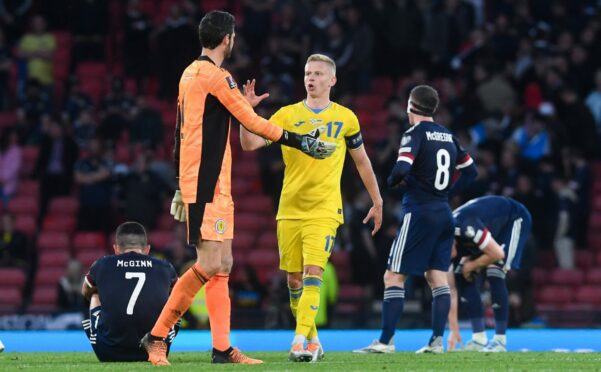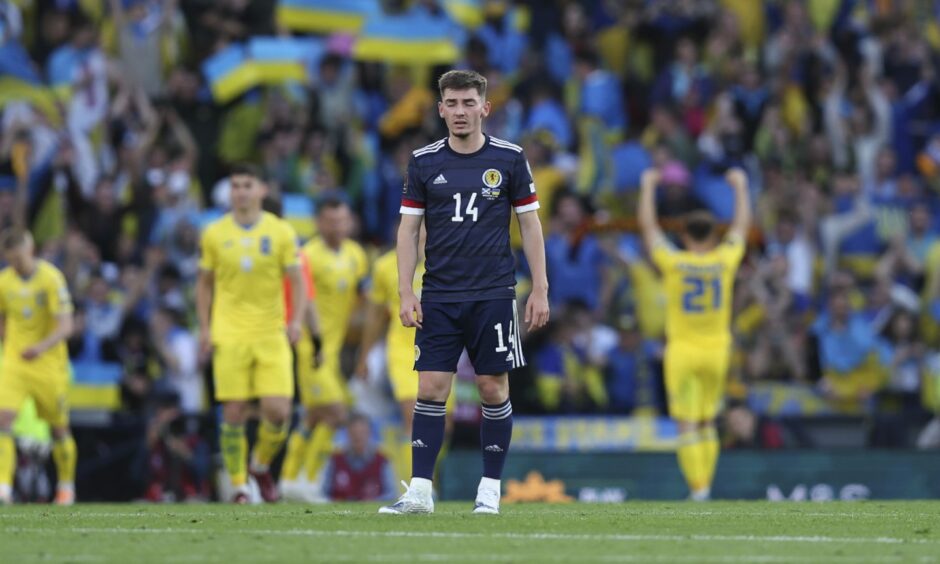Congratulations, Ukraine.
Rarely will a nation have celebrated so deeply the normally routine matter of a win over Scotland’s football team. Similarly, rarely will a support which still bridles at the mention of names like Jan Rezek, Manuel Mejuto Gonzalez and Daniel Van Buyten have met its qualification doom with such genuine magnanimity and well-wishes.
It is a measure of the extraordinary, awful circumstances: the most consequential of international football matches, played within the most rationalising of contexts.
The lens of war distorts. For Scotland, whose team had everything to gain, the plight of their visitors brought acknowledgement that, in the greater scheme, such goals are trivial. But at the opposite end of the telescope Ukraine, whose pre-existing everything is in the process of being reduced to dust by Russian weaponry, the visible reinforcement of national identity a successful football team provides is of incalculable importance.
For Ukraine, of course, hurdles remain, even in the realm of football. Their route to the Finals still passes through Wales, heirs to Scotland’s lot of attempting to make sporting dreams come true while the entire world, with its best will, hopes for them to be dashed.
It will be a tough ask for a side whose majority lives in an active war zone: men who gave so much of their body and soul to their first competitive match in almost half a year, a period in which their land and lives have changed beyond conception, must now return to the well for whatever reserves remain inside them.
Fortified by the experiences and efforts of their countrymen at home, they will find plenty. Whether it will be enough to prevail on the football field remains to be judged; the bigger prize is the right to peacefully exist at all. In both senses: Slava Ukraini.


Conversation